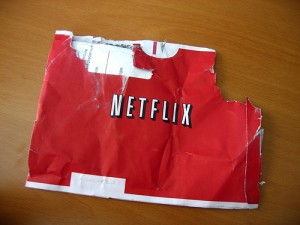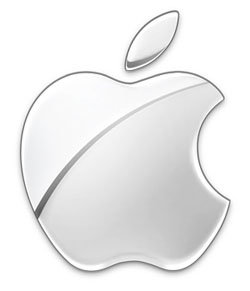 Netflix’s earnings announcement earlier this week felt like the final straw for investors holding out hope for the wayward DVD-rental and video streaming giant. The news was grim, despite the fact that Netflix beat earnings estimates, increased revenues by almost 50%, and increased profits by 39.3% from a year ago.
Netflix’s earnings announcement earlier this week felt like the final straw for investors holding out hope for the wayward DVD-rental and video streaming giant. The news was grim, despite the fact that Netflix beat earnings estimates, increased revenues by almost 50%, and increased profits by 39.3% from a year ago.
The quarter had been a tough one: profits and revenues were down from last quarter; a decision to spin off one of Netflix’s core businesses — its subscription DVD-by-mail service — ended in confusion and a decision by the company to nix Qwikster, the spinoff; and a price hike on its DVD business fomented considerable anger within Netflix’s subscriber base. In total, the company hemorrhaged over 800,000 domestic accounts, or just over 3% of its global subscriber base, in the third quarter. (A good analysis of the earnings report can be found here.)
On Tuesday, Netflix share prices plunged almost 35%. The $80 stock traded at almost $300 in July of this year. What happened? Two things.
Netflix CEO, Reed Hastings, is trying to reposition Netflix based on wider market trends. The general consensus is that DVDs and Blu Ray disks will be obsolete as broadband internet reaches more households. Everyone is betting that streaming video is the future, so Netflix, naturally, built a streaming service alongside its DVD subscription service.
Until about six months ago, I had been a subscriber to the DVDs-by-mail service. I really, really liked it. As a college student, I lived for those little red envelopes because they promised a much-needed respite from the drudgery of coursework. The selection was great, and it was relatively inexpensive. I never sprung for the streaming service because the selection was, well, mediocre at best.
Unlike many people who actually subscribed to the streaming service, I was never under the impression that Netflix would begin streaming “premium content” — all the “good” movies and programs only available by mail. In a letter to shareholders this past Monday, Reed Hastings crushed the dreams of many hopeful streamers; the company is and will be unable to stream premium content because of the prohibitive licensing costs.
And then there was Qwikster, a branding debacle if ever there was one. In mid-September, Netflix spun out the much beloved DVD-by-mail business, hiked prices, and—horror of horrors—forced formerly contented Netflix customers to…manage two queues. Terrible, right? Evidently, yes. In light of negative sentiment, Hastings nixed Qwikster, saying that the DVD rental service will remain a part of Netflix.
These two serious missteps by the company leave analysts scratching their heads. On the one hand, Netflix plans to expand its services into Asian, European and Latin American markets, but in the US, Netflix’s future is uncertain.
 Amazon’s Instant Video service offers streaming of more than 10,000 movies for just under $80 a year, and the service is free for existing Amazon Prime customers. And there’s always Hulu Plus for streaming television shows. But the real winner here is Apple.
Amazon’s Instant Video service offers streaming of more than 10,000 movies for just under $80 a year, and the service is free for existing Amazon Prime customers. And there’s always Hulu Plus for streaming television shows. But the real winner here is Apple.
Apple?! Well, not with any of its current products.
Anyone who has read the newly released biography of Steve Jobs — and/or anyone who has read MG Siegler’s TechCrunch piece is all hot and bothered about something big in the works.
Isaacson wrote, “[Steve] very much wanted to do for television sets what he had done for computers, music players, and phones: make them simple and elegant.” Jobs told Isaacson, “I’d like to create an integrated television set that is completely easy to use. It would be seamlessly synced with all of your devices and with iCloud. It will have the simplest user interface you could imagine. I finally cracked it.”
If there is one thing Apple does well, it is disrupting markets. In the preface to the biography, Isaacson counted the markets that Steve and his company have revolutionized: personal computers, tablet computers, the music industry and smartphones, among others. MG Seigler said it best, “Television is a core technology that touches billions, but it really hasn’t been fundamentally rethought in decades.” It is a market begging for disruption.
I say the following not because I am an Apple fanboy, or because I am an Apple shareholder, or because I just finished reading the Steve Jobs biography; I say it because there is a historical precedent for it. Apple is a successful company because it delivers hardware and software as a complete package, and what a package it is.
With the iPod as its hardware platform, Apple came to dominate the digital music business. With the iPhone and iPad, it has given developers the opportunity to remake the mobile application market. Its iBooks store is growing. It already rents out movies and television shows. There is no reason to think that people, we the users, won’t want to watch movies or television on, ahem, a television.
Last I heard neither Amazon, nor Netflix nor Hulu, plans to build televisions. But hey, who knows?









